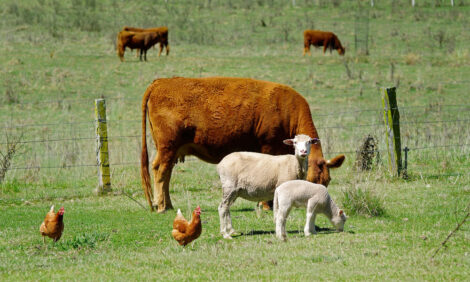



Change Turkey Feeds to Prevent Food Poisoning
US - Scientists have found that Thanksgiving turkeys (and other poultry) are less likely to be contaminated with Campylobacter (bacteria that can cause food poisoning) if the birds chowed on natural feed ingredients.Live Science reports that about 76 million cases of food poisoning occur in the United States every year, according to the US Centers for Disease Control and Prevention.
Outbreaks of various pathogens traced to spinach, peanut butter, tomatoes, jalapeño peppers and other foods have grabbed headlines in recent years. But plants are not the only food that can become contaminated by disease-causing microbes. Meat can be just as dangerous if not handled properly.
"Food-borne pathogens are very prevalent in a lot of our domestic animals, and especially in poultry," said Dan Donoghue of the University of Arkansas in the American Chemical Society's Global Challenges podcast.
The two biggest bacterial contaminants of poultry are the well-known Salmonella, and the perhaps less well-known Campylobacter, which is actually the number one cause of food poisoning in the United States and the world. Signs of food poisoning include vomiting and diarrhoea.
These bugs are not generally a problem when enjoying some roast turkey on Thanksgiving, the report continues, because cooking tends to kill them. But if cooks get sloppy when handling raw birds, the bacteria can be transferred to cooking utensils or other foods, potentially making dinner guests sick to their stomachs.
Campylobacter has been the tougher of the two bacteria to eliminate from poultry because it cannot be eradicated with antibiotics like Salmonella can.
"With poultry, until recently, we haven't had any treatments at all for Campylobacter because it's a normal microflora, so when you use an antibiotic it may reduce the concentration, but not eliminate it," Dr Donoghue said.
Since antibiotics were ineffective, Dr Donoghue decided to see if changing the birds' diet would make a difference — and according to results he and his colleagues published earlier this year (in the July issue of the Journal of Applied and Environmental Microbiology), it did.
They fed the birds natural feed ingredients, specifically a compound called caprylic acid.
"It's a medium-chain fatty acid, it's found in cow's milk, and in coconut milk, and it has antibacterial activity," Dr Donoghue said. "We found that when you add it to the diet of poultry, it seems to consistently inhibit or reduce Campylobacter colonization of poultry."
Dr Donoghue and his colleagues will publish further research on the antibacterial feed in an upcoming issue of Poultry Science, rpeorts Live Science.











